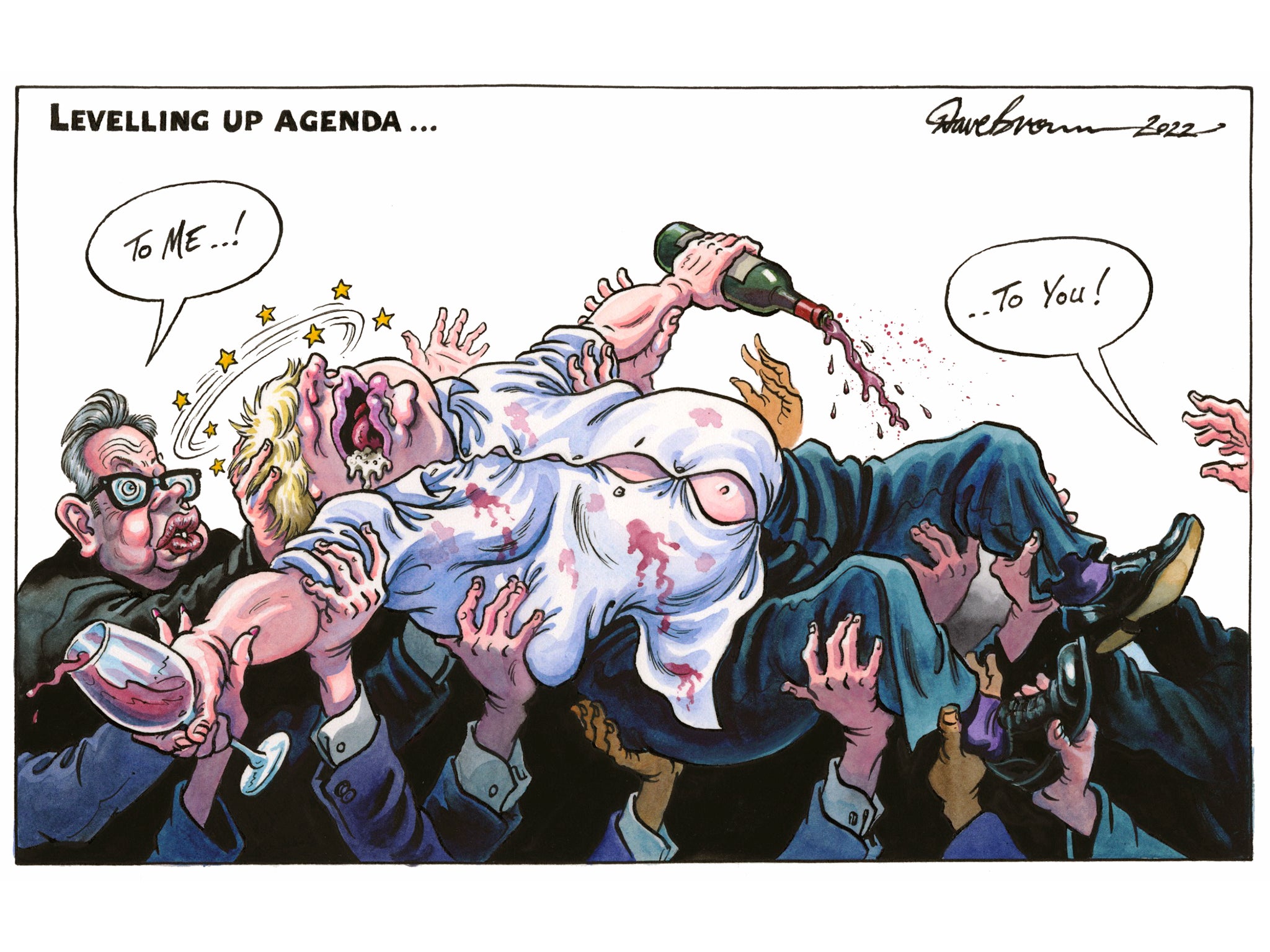When Boris Johnson brought the good news gospel of levelling up to the inhabitants of neglected northern towns and left-behind regions at the 2019 general election, he obviously forgot to tell them that they wouldn’t be levelled up for about a decade. Had the prime minister mentioned that they would have to wait until 2030 for regeneration, jobs and prosperity, they might not have been so willing to “lend” him their votes.
According to the much-hyped levelling-up white paper, even in a decade, levelling up, whatever that means, will still be limited and incomplete. Of course, altering the economic geography of a nation is a long-term project, but such was the boosterish atmosphere of the Conservatives’ triumphant 2019 winter campaign in the “red wall” seats that an essential sense of perspective was somehow lost. No government can guarantee economic growth, and it is dishonest to give that impression.
The white paper unveiled by Michael Gove does seem a miserable, cynical affair. The overriding political fact is that 2030 is at least two general elections away, by which point Lord Gove and Lord Johnson will be cracking gags on the lecture circuit and need never worry about Wigan again. This cabinet, or most of it, will not have to face any consequences for failing to fulfil the proposed legal duties to level up, vaguely drafted as they will be.
Even with Britain’s sluggish productivity growth there should be some improvement in living standards, even in the least favoured places, by 2030. In that timeframe, London, East Anglia and the southeast may well find their traditionally rosy prospects blighted by the impact of Brexit on financial services and farming. So the gap between north and southeast may narrow, but for all the wrong reasons – because the prosperous south of the kingdom might find itself levelling down.
The overriding economic fact is that a lethal combination of Covid, Brexit and extraordinary fraud and waste have decimated the public finances. Even if investing vast sums in depressed parts of the north of England and the Midlands was ever intended – and there were never any bankable promises to that effect – the Treasury will not countenance such radical moves now.
The Gove plan includes £100m of new government funding for “innovation accelerators” to boost research and development in Greater Manchester, the West Midlands and Glasgow City Region, which is welcome, but is modest compared to the scale of productive investment, especially from the private sector, needed to fulfil the dream of many thousands of new well-paid, highly-skilled jobs of the kind that once made proud, industrial cities such as Birmingham, Bradford, Stoke-on-Trent, Sheffield and the rest some of the richest in the world.
Their grand Victorian public and industrial buildings are a monument to that past and a reminder that wealth, enterprise and innovation spring from massive investment, public and private. Brexit has done more to depress private sector investment in business in Britain, it must be added.
Moreover, levelling up has been set back and denuded since it was first coined as an election campaign slogan. The promise to provide broadband capable of gigabit speeds nationwide was scheduled for 2025 but is now not expected before 2030. In terms of major investment, all that is left, in material terms, are the surviving, not-yet-cancelled parts of the infrastructure projects dating back to the Cameron-Osborne era, such as the scaled-back HS2, and some modest sums for training schemes, town centres, policing and education.
To keep up to speed with all the latest opinions and comment sign up to our free weekly Voices newsletter by clicking here
At best, the levelling-up project is a distant echo of the old regional policies governments pursued from the 1930s (when large parts of the United Kingdom were referred to patronisingly but accurately as the “distressed areas”) until the apparatus was dismantled by the Thatcher government in the 1980s. If levelling up is about anything it seems to be about politically-driven geographic redistribution of wealth rather than its creation. It is odd for a Conservative government.
At worst, levelling up is an insult to the intelligence of the people it is supposed to help. As with so much that this government pretends to be doing, the more grandiose the language, the less substance lies behind it. What were once mere targets are now “missions” – but without actually having a specific metric by which they can be judged. A pledge to reduce the cross-regional gaps in life expectancies is useless without some specificity. Who will judge if “pride of place” has been restored in Bury or Leeds? Reducing murder, manslaughter, serious violence and neighbourhood crime, especially in the worst-affected areas, is something any government should be doing, and everywhere. And if more devolution and elected mayors were the answers to economic imbalances, the UK could be levelled up by Christmas.
If the Conservatives, with or without Boris Johnson, are expecting to win the next election on the basis of this levelling-up white paper, then they are deluding themselves. It joins the equally vacuous chatter about “build back better” and the invisible Brexit “bonuses” as symbols of failure, and of a party that, in power for 11 years, has run out of ideas.




Join our commenting forum
Join thought-provoking conversations, follow other Independent readers and see their replies
Comments